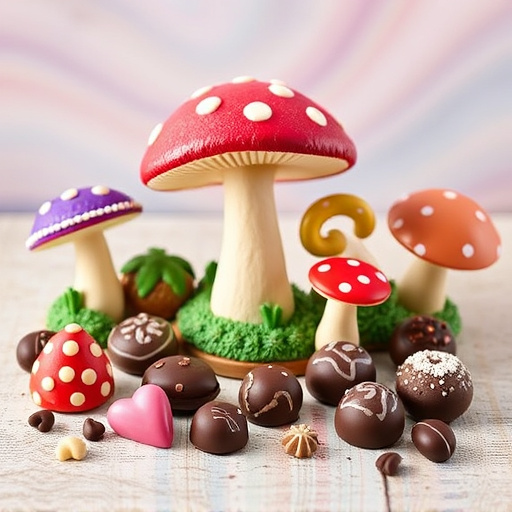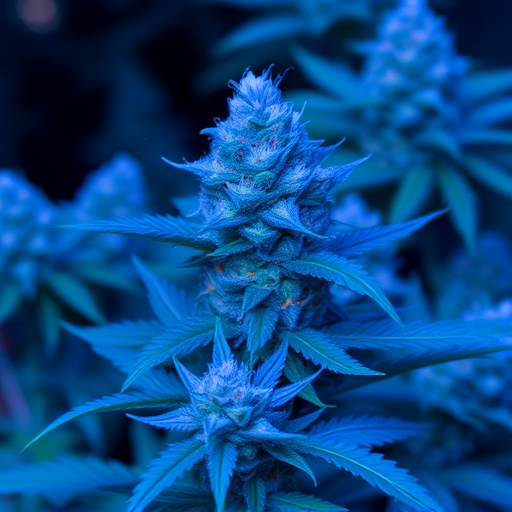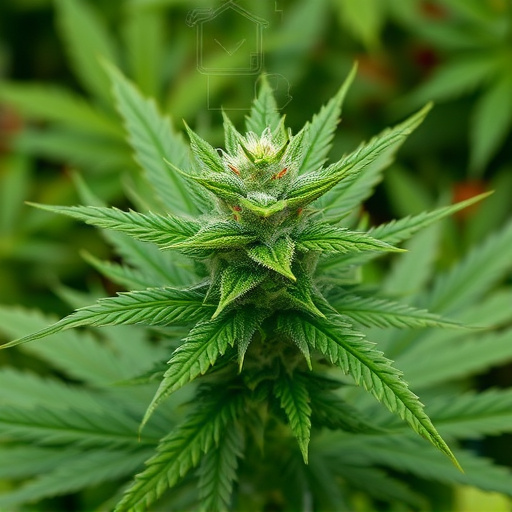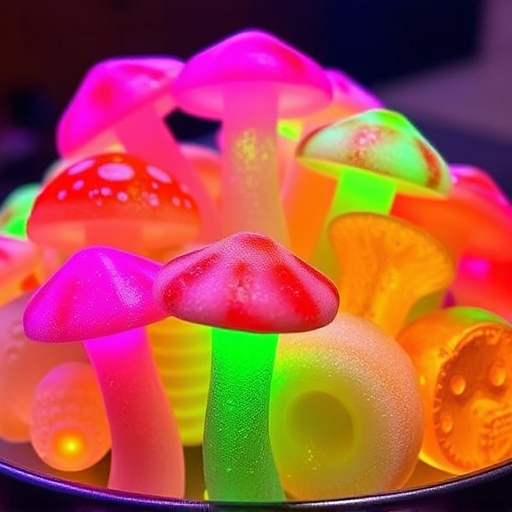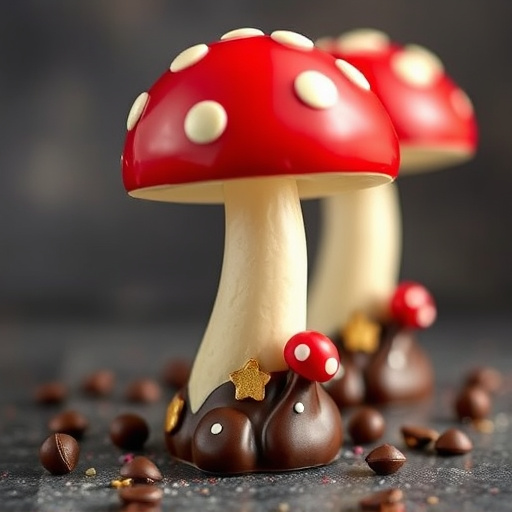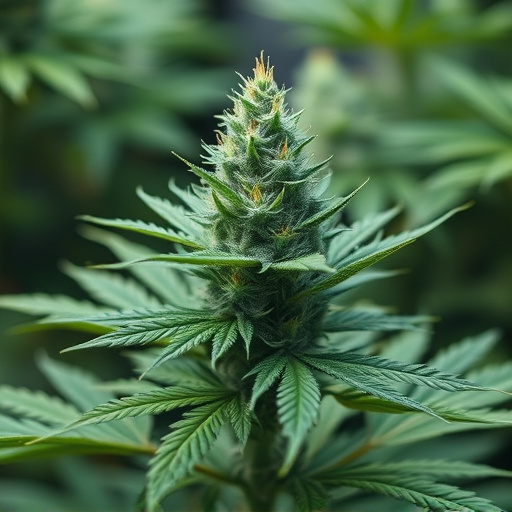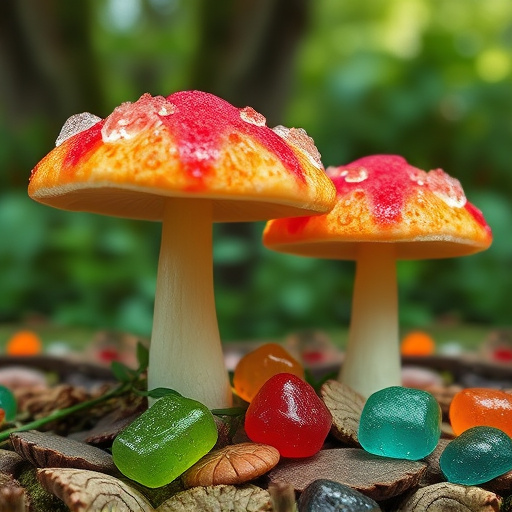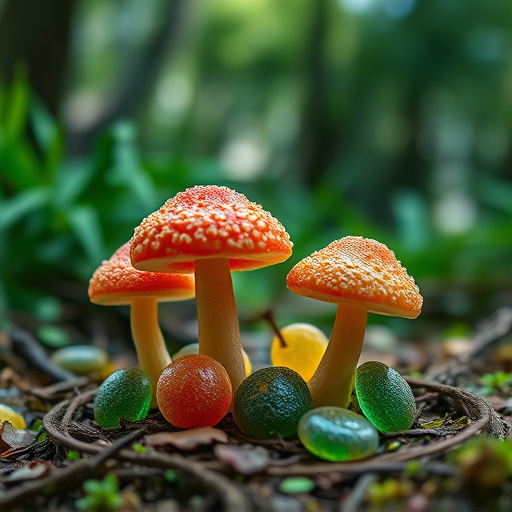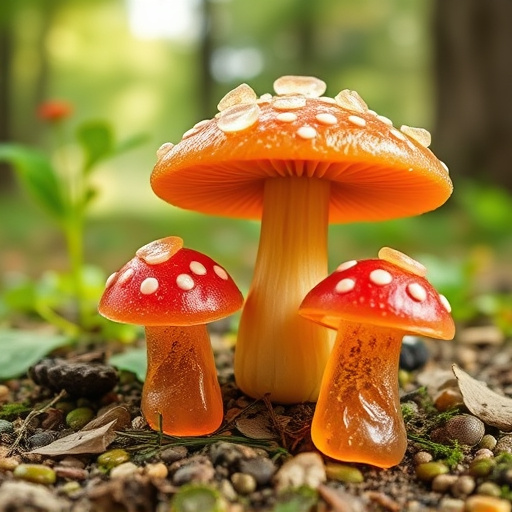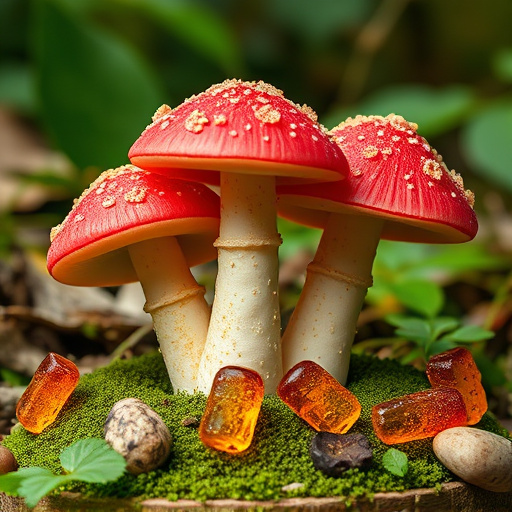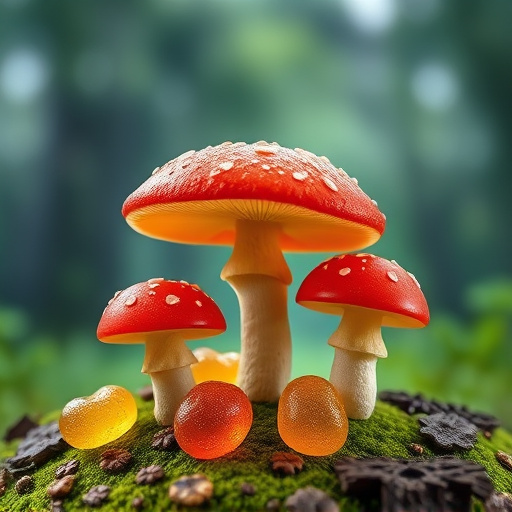Trauma can significantly impact mental health, prompting interest in alternative healing methods like Magic Mushroom Gummies for Trauma Recovery. Derived from psilocybin mushrooms, these gummies interact with brain serotonin receptors, potentially promoting neuroplasticity and helping process traumatic memories. They offer a safe space for introspection, aiding recovery, reducing symptoms, and enhancing resilience. As an innovative, discrete delivery method for psilocybin therapy, Magic Mushroom Gummies are gaining recognition for treating PTSD, anxiety, and depression, normalizing their use, and improving well-being.
Trauma can leave profound, lasting effects on mental health, but new alternative healing methods offer hope. Among these, Magic Mushroom Gummies derived from Amanita species are gaining attention for their potential in trauma recovery. This article delves into the science behind trauma and its impact, examines the role of magic mushrooms in mitigating symptoms, and explores Amanita gummies as a safe, effective, and accessible option for those seeking healing. Discover how these innovative treatments could be a game-changer for trauma survivors.
- Understanding Trauma and Its Impact on Mental Health
- The Role of Magic Mushrooms in Trauma Recovery
- Exploring Amanita Magic Mushroom Gummies for Safe and Effective Healing
Understanding Trauma and Its Impact on Mental Health

Trauma, an overwhelming and distressing event, can leave deep imprints on one’s mental health, leading to conditions like PTSD (Post-Traumatic Stress Disorder). The impact of trauma is multifaceted, affecting individuals’ daily lives, relationships, and overall well-being. Many seek alternative healing methods, and among them, Magic Mushroom Gummies for Trauma Recovery have gained attention as a potential tool for supporting those dealing with traumatic experiences.
These gummies, derived from the psilocybin mushroom (Amanita species), contain compounds that interact with our brain’s serotonin receptors, triggering altered states of consciousness. Research suggests that this can facilitate healing by promoting neuroplasticity and helping individuals process traumatic memories. By offering a safe and controlled environment for reflection and introspection, Magic Mushroom Gummies may assist in trauma recovery, offering relief from symptoms and fostering mental resilience.
The Role of Magic Mushrooms in Trauma Recovery
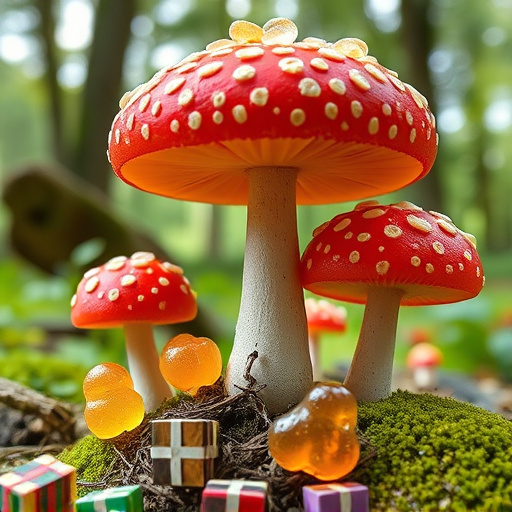
Magic mushrooms, scientifically known as Psilocybin, have gained attention for their potential therapeutic benefits in trauma recovery. When consumed in a controlled and supervised setting, these powerful fungi can facilitate profound psychological shifts and promote healing. Studies suggest that psilocybin-assisted therapy can help individuals process traumatic memories, reduce the intensity of emotional responses, and decrease symptoms associated with conditions like PTSD.
The integration of magic mushroom gummies as a tool for trauma recovery offers a unique and potentially effective approach. Gummies provide a discrete and easy-to-consume method for delivering psilocybin, making it more accessible to those seeking alternative treatment options. By normalizing the experience and reducing stigma, these edibles can create a safe space for individuals to confront and overcome traumatic events, ultimately improving their overall well-being and quality of life.
Exploring Amanita Magic Mushroom Gummies for Safe and Effective Healing
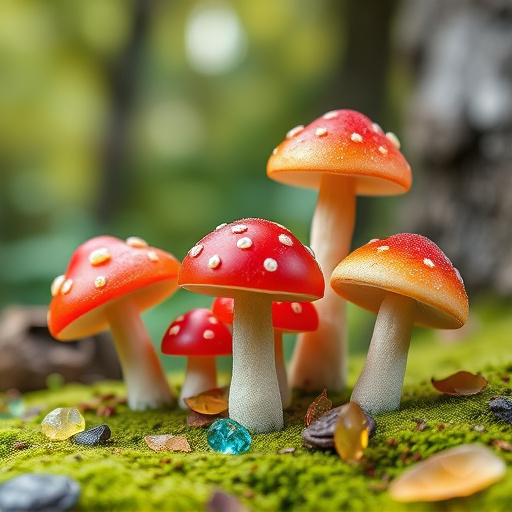
Exploring the potential of Amanita Magic Mushroom gummies for trauma recovery is an emerging trend in alternative healing. These edible forms of psychedelic compounds offer a unique and discrete way to access the therapeutic benefits associated with magic mushrooms. By infusing these mushrooms into delicious gummy bears or other treats, individuals can experience a controlled dose of psilocybin, the active compound known for its positive effects on mental health.
For those seeking healing from trauma, post-traumatic stress disorder (PTSD), anxiety, and depression, Magic Mushroom Gummies provide an accessible and potentially safer alternative to traditional psychedelic therapy. The low-dose, microdosing approach allows users to reap the benefits without intense, mind-altering experiences often associated with higher doses. This subtle yet powerful method of delivery can facilitate profound personal growth, emotional processing, and healing while offering a more discreet and convenient option for individuals looking to explore alternative treatments for trauma recovery.
In light of the above discussions, it’s clear that magic mushroom gummies, particularly those derived from Amanita species, offer a promising avenue for trauma recovery. By providing a safe and effective way to process traumatic experiences, these gummies can significantly enhance mental health outcomes. As research continues to explore their therapeutic potential, considering Amanita magic mushroom gummies as a complementary approach to trauma healing deserves serious consideration.

